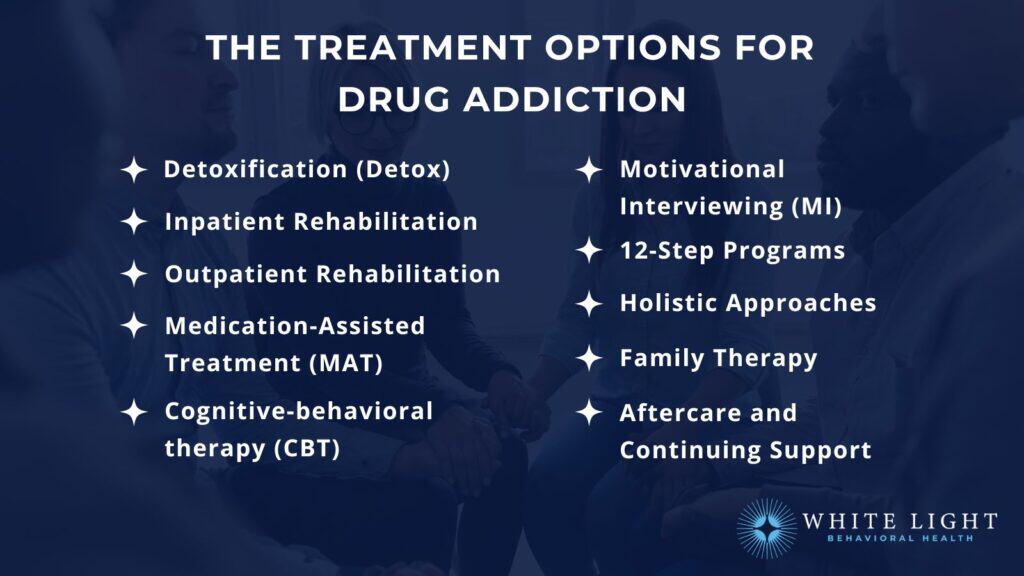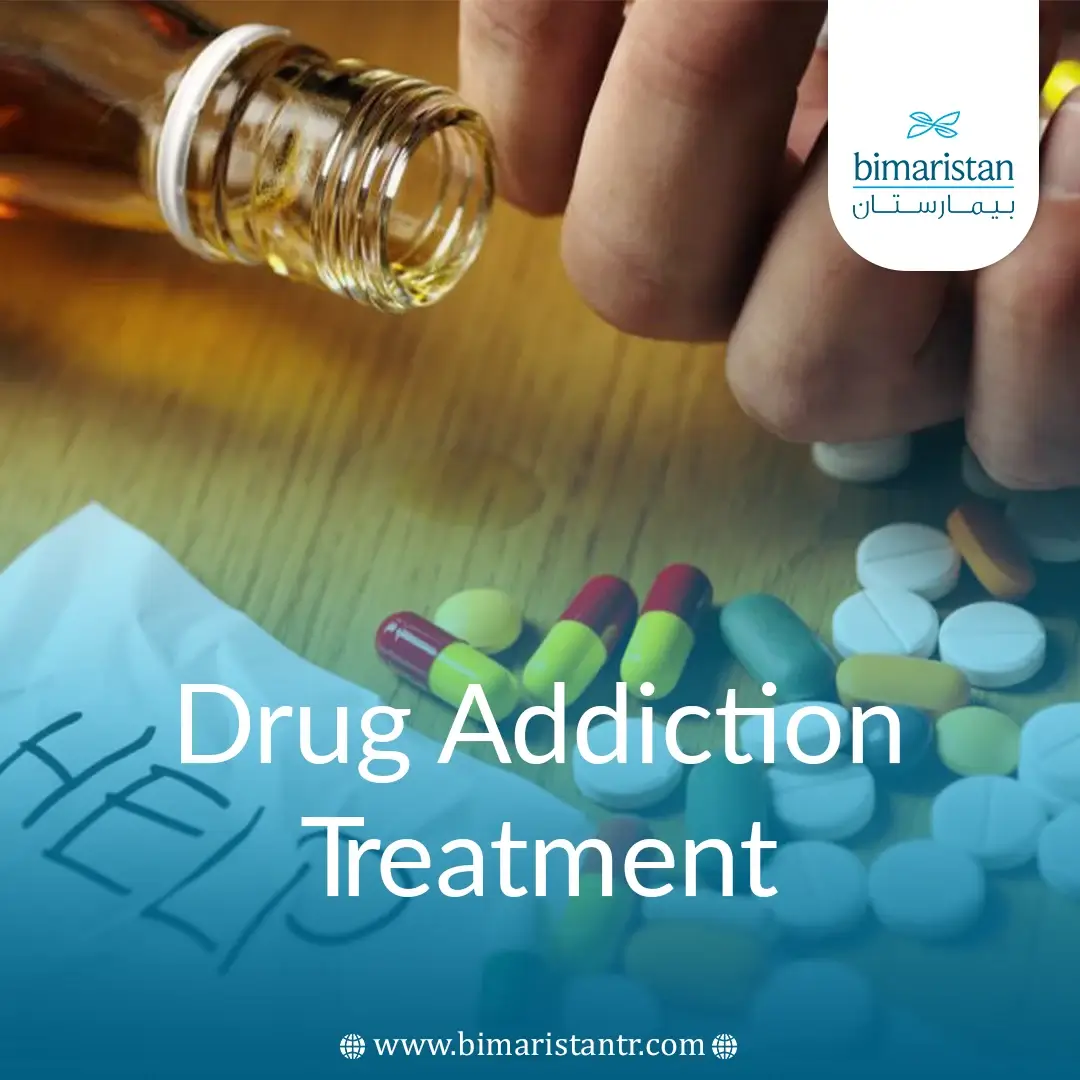Explore advanced techniques offered by dual diagnosis rehab NJ centers
Wiki Article
A Comprehensive Overview to Substance Abuse Rehab
Substance Abuse recovery, frequently described as rehabilitation, is a structured procedure designed to assist people overcome reliance on drugs, alcohol, or other habit forming substances. It is not simply concerning cleansing-- it is a trip of mental, psychological, and physical transformation. Rehabilitation centers supply safe atmospheres where individuals can challenge the origin of their dependency, address emotional triggers, and find out dealing mechanisms to suffer long-term soberness. This procedure is guided by qualified experts, consisting of specialists, medical doctors, and counselors who recognize the complex nature of addiction as both a physiological and behavioral condition.Comprehending the Core of Substance Abuse Abuse Rehab
At its core, rehab has to do with restoring an individual's life. Dependency often leaves behind deep scars-- strained relationships, financial distress, illness, and emotional instability. With extensive rehab programs, individuals are given the tools to repair these aspects gradually. Rehabilitation isn't almost avoiding materials; it has to do with reclaiming control and uncovering one's sense of self-respect. The programs stress framework, consistency, and personal accountability, which are key to long-term healing success. Every little landmark during rehabilitation serves as a structure for lasting soberness.In addition, Substance Abuse recovery is not a one-size-fits-all approach. It recognizes that everyone's addiction story is distinct-- what caused Substance Abuse abuse, exactly how it progressed, and how recovery can be sustained vary extensively. Therapy facilities personalize care strategies based on specific evaluations, making certain that every individual receives assistance that aligns with their psychological state, dependency history, and life conditions. This individualized technique considerably boosts recovery end results and helps avoid regression once people reintegrate into everyday life.
The Advantages of Inpatient Rehab Programs
Inpatient rehabilitation, likewise recognized as residential treatment, offers one of the most effective methods for those battling serious Substance Abuse addiction. One of its primary advantages is the distraction-free and structured environment. When a person gets in an inpatient center, they are momentarily gotten rid of from exterior triggers-- such as friends who make use of materials, demanding offices, or household disputes-- that may hinder their recovery. This seclusion from adverse impacts enables clients to focus totally on recovery. Living within a monitored and helpful setting develops the security needed to break old behaviors and create much healthier patterns of behavior.Another significant advantage of inpatient rehab is the 24/7 specialist guidance offered to each person. Withdrawal signs from drugs or alcohol can be unpredictable and, sometimes, lethal. Inpatient facilities have medical groups that offer round-the-clock treatment, guaranteeing patients are secure and comfortable during detoxing. Beyond physical health, continual supervision additionally uses emotional confidence-- clients know that aid is available at any moment, which decreases anxiety and develops rely on the recuperation process. This instant accessibility to medical and emotional support dramatically enhances the success price compared to outpatient care for extreme dependencies.
Finally, inpatient rehab programs promote a solid sense of area and accountability. Patients communicate with others who share similar battles, join group therapy, and take part in tasks that encourage teamwork and compassion. This environment nurtures good understanding and reduces sensations of isolation frequently connected with dependency. By getting in touch with peers and gaining from their experiences, individuals create social bonds that proceed to sustain them also after leaving the center. This feeling of belonging, combined with constant specialist guidance, makes inpatient rehabilitation a very effective foundation for sustainable healing.
Inpatient Rehab Solutions Used
Inpatient recovery facilities offer a diverse variety of services developed to treat the mind, body, and spirit concurrently. The initial stage normally entails clinical detoxing, a procedure that securely eliminates compounds from the body while handling withdrawal symptoms. Detox is supervised by physician that might provide medication to relieve discomfort and prevent complications. As soon as detoxification is total, clients transition to structured day-to-day programs that consist of wellness, treatment, and counseling activities. This incorporated method guarantees that patients not just conquer physical dependence yet also address psychological and mental aspects of dependency.Therapeutic solutions are at the heart of inpatient rehabilitation. Facilities offer individual treatment sessions, where clients function one-on-one with qualified therapists to reveal the underlying causes of their dependency-- such as trauma, mental wellness disorders, or unsolved emotional discomfort. Cognitive-behavioral treatment (CBT), dialectical habits treatment (DBT), and motivational speaking with are amongst the most typical evidence-based approaches used. On top of that, team therapy sessions supply a supportive area for people to share experiences, gain perspective, and establish interpersonal abilities. Household therapy is Learn More Here also often consisted of, helping to restore depend on and improve communication between individuals and their enjoyed ones.
Past conventional treatment, several inpatient programs include alternative and entertainment services to promote general health - Inpatient rehab. Yoga, you can try here meditation, art therapy, and physical fitness programs assist lower stress and instruct mindfulness. Nutritional counseling guarantees that people restore physical wellness, as Substance Abuse often depletes the body's vital nutrients. Some rehab centers even provide professional training and instructional workshops to aid clients plan for reintegration right into culture. These varied services are created to heal the entire person-- not just deal with dependency signs and symptoms-- by cultivating strength, equilibrium, and objective
Why You Must Consider Outpatient Programs
While inpatient rehabilitation supplies an immersive and extensive method, outpatient programs offer an option that enables versatility for individuals that can not devote to permanent household therapy. Outpatient rehabilitation makes it possible for individuals to get structured therapy and medical support while keeping their day-to-day responsibilities-- such as job, institution, or family members care. For many people with mild to modest addiction, outpatient therapy offers the best balance in between recovery and daily life. It allows individuals to exercise the coping skills they find out in real-world environments, reinforcing their resilience despite daily difficulties.An additional reason to take into consideration outpatient programs is their cost-effectiveness. Inpatient care can be costly as a result of accommodation, dishes, and 24-hour guidance, which may not be economically viable for everybody. Outpatient programs, nonetheless, usually set you back less because they do not call for residential remains. Several facilities provide sliding-scale repayment alternatives or accept insurance coverage to make therapy available. For those that have currently finished inpatient rehab, transitioning into an outpatient program functions as an important continuum of care, assisting preserve liability and protect against regression through continuous support.
Furthermore, outpatient programs use a high level of modification. Patients can choose between partial hospitalization programs (PHP), intensive outpatient programs (IOP), or common outpatient treatment, relying on their degree of demand. Each alternative provides varying degrees of structure and time commitment. IOPs generally involve several treatment sessions per week, while standard outpatient treatment could consist of regular counseling check outs. This versatility guarantees that patients can receive professional aid customized to their healing stage, making outpatient programs a practical and empowering selection for lasting recuperation maintenance.

Checking Out Various Other Therapy Alternatives in Substance Abuse Abuse Recovery
Beyond inpatient and outpatient rehabilitation, there are a number of various other therapy alternatives available for individuals seeking recovery from Substance Abuse addiction (addiction treatment). Medication-assisted therapy (FLOOR COVERING) is one such technique, integrating recommended medicines with behavioral therapy to take care of withdrawal signs and learn the facts here now symptoms and lower desires. Medicines like buprenorphine, naltrexone, or methadone are commonly utilized in opioid addiction treatment, while acamprosate or disulfiram might sustain alcohol healing. MAT aids support brain chemistry, allowing people to concentrate on therapy and lifestyle adjustments without the frustrating discomfort of withdrawal
Different therapies are additionally ending up being increasingly preferred in Substance Abuse Abuse therapy. These may consist of all natural practices like acupuncture, horse therapy, adventure-based counseling, and spiritual recovery programs. While these approaches might not replace typical therapy, they can complement it by enhancing psychological guideline, self-awareness, and confidence. The objective of exploring various treatment alternatives is to create a recuperation plan that reverberates with each individual's worths, beliefs, and way of living. An individualized combination of treatments often produces the most sustainable outcomes, empowering people to live a fulfilling, substance-free life.
The Course to Long-Term Sobriety and Healing
Completing rehab-- whether inpatient or outpatient-- is just the start of a long-lasting healing trip. Aftercare programs play a vital role in preserving soberness and preventing relapse. These programs may consist of recurring therapy, support system like Narcotics Anonymous or Twelve Step Programs, and sober living arrangements that offer ongoing framework. Uniformity and community are important; individuals that remain attached to healing networks are most likely to sustain long-term development. Rehab shows the essential coping abilities, yet aftercare ensures that those skills are applied and strengthened in real-life circumstances.Long-lasting healing likewise depends upon way of living adjustments that sustain psychological and physical health. Developing healthy and balanced behaviors-- such as normal workout, well balanced nourishment, and mindfulness practices-- aids recover equilibrium to the mind and body. Involving in purposeful activities like volunteering, pursuing leisure activities, or reconnecting with enjoyed ones can load the psychological space left by Substance Abuse usage. Concentrating and establishing a positive frame of mind on future goals offer recouping individuals a renewed feeling of identification and direction. Sobriety is not concerning starvation; it's regarding recovering life's richness and possibilities.

With thorough rehabilitation programs, people are offered the devices to repair these aspects progressively. Inpatient rehabilitation programs foster a strong sense of area and accountability. While inpatient rehabilitation supplies a extensive and immersive strategy, outpatient programs supply an alternative that enables flexibility for people that can not devote to full time domestic therapy. Outpatient rehabilitation allows patients to obtain structured treatment and medical support while keeping their daily duties-- such as family, job, or school care. Beyond inpatient and outpatient rehabilitation, there are several other therapy options readily available for individuals looking for recovery from Substance Abuse addiction.
Report this wiki page